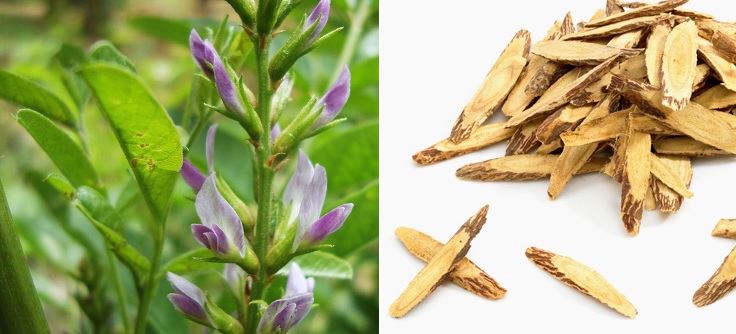General Health Tips & News
HEALTH BENEFITS OF GLYCYRRHIZA GLABRA
By A.A. (staff writer) , published on December 30, 2020

Medicine Telehealth Health licorice health benefits of licorice glycyrrhiza glabra health benefits of glycyrrhiza glabra
Glycyrrhiza glabra is a perennial herb. It is also called Licorice. It is mostly grown in western Asia, Turkey and Greece. Licorice has been used since ancient times as a flavoring agent. It is also effective as an expectorant.
Unpeeled dried roots, runners, and underground stem are medical parts of the plant. Glycyrrhizin is a compound present in Licorice. It is 50 times sweeter than sugar. Eating too much Licorice leads to hypertension due to fluid retention caused by the glycyrrhizin glycoside1.
Licorice is also popular as a sweetener in candies because of its sweet taste, and manufacturers also use it to mask the flavor of medications. Some licorice candies do not contain any portion of the licorice plant, but instead, use anise oil as a flavoring since its tastes and smell are similar to licorice. Licorice is available in different forms, like candies, liquid extracts, candies, herbal teas, and dried herb2.
Health benefits
Boosts immune system
Licorice also tends to increase immunity by increasing interferon levels, a crucial chemical of the immune system that battles attacking viruses. It also involves strong antioxidants and some phytoestrogens that can fulfill some of the normal estrogen functions of the body. They are beneficial during menopause. Glycyrrhizinic acid also seems to stop many bacteria and viruses like influenza from developing.
Relieves pain and stress
The action of Licorice is the same as that of aspirin. It relieves pain such as headaches and reduces fever as well. It also has anti-allergic properties and can be useful for bronchial asthma, hay fever, rhinitis and conjunctivitis. Maybe by its action on the adrenal glands, licorice has the potential to improve stress resistance. During periods of both physical and emotional discomfort, after surgery or during convalescence, or when feeling exhausted and running low, it should be considered.
Control respiratory problems and sore throat
By helping to release and reduce mucus in the airways, licorice relieves congestion and coughing; this helps a cough more' productive,' throwing up bits of phlegm and other mucus. Licorice helps to treat bronchial spasms as well. The herb also soothes pain in the throat and combat viruses that cause respiratory ailments and mucus overproduction, such as coughs, asthma and lung infections that are annoying.
Combat hepatitis
In this essential organ, licorice also strengthens the liver and facilitates regeneration. The anti-inflammatory effects of the herb help soothe hepatitis-associated inflammation of the liver. Licorice also battles the infection that is usually responsible for hepatitis and contains important antioxidant compounds that help to protect the liver's overall health3.
Tooth decay
Some studies indicate that licorice can help destroy bacteria that cause tooth decay in the mouth. However, although in the laboratory setting, licorice has shown antibacterial activity, human tests have not yet shown that it has any cavity-fighting capacity. Its tendency to suppress oral bacteria development indicates that it has the potential to be used in cavity therapy.
Sore throat
According to many people, licorice is an effective remedy for sore throat. A small study enrolled individuals who before surgery, had a breathing tube implanted into their windpipe. After its removal, the breathing tube may induce a postoperative sore throat, known as POST. The researchers found that gargling 1-15 minutes before surgery with a licorice solution was as effective as a ketamine gargle in minimizing the frequency and seriousness of POST.
Functional Dyspepsia
Concomitant use of licorice with other herbs helps to relieve functional dyspepsia (FD), a chronic condition characterized by upper abdominal discomfort.
Menopause and Menstrual Symptoms
For women with menstrual cramps, licorice root is a popular home cure and is often known to help relieve much of the menopause's adverse effects, including hot flashes. Licorice has phytoestrogens, which are plant-based compounds that act like the body's estrogen. Given proof of their advantages, it is still uncertain how well the phytoestrogens function in root licorice.
Peptic Ulcers
In the scientific community, the role of licorice in the treatment of peptic ulcer disease has gained growing attention, especially about its effect on bacteria known as Helicobacter pylori (H. pylori). H. Pylori is one of the most notoriously difficult diseases to eradicate and is the major cause of peptic ulcers4.
Coronavirus disease 2019 (COVID-19)
Some experts warn that licorice may interfere with the reaction of the body to COVID-19. To help this alert, there is no strong evidence. But there is no good evidence to justify the use of licorice in COVID-19 either. Instead, follow safe lifestyle choices and established methods of prevention5.
Helps the digestive system
One of the main benefits of licorice is its potential to lead to relaxing gastric and intestinal symptoms, including stomach ulcers, heartburn, and other stomach-affecting inflammation problems. To keep their bowels in tip-top condition, certain people want to drink licorice root tea during the day - change your coffee once in a while to see if you can experience the difference6.
References
- Licorice Root. [internet]. [cited 2020 November 7]; Available from https://www.urmc.rochester.edu/encyclopedia/content.aspx?contenttypeid=19&contentid=Licorice
- What are the benefits of licorice root? [internet]. [cited 2020 November 7]; Available from https://www.medicalnewstoday.com/articles/323761
- Licorice Root Benefits. [internet]. [cited 2020 November 7]; Available from https://www.herbwisdom.com/herb-licorice-root.html
- Health benefits of Licorice Root. [internet]. [cited 2020 November 7]; Available from https://www.verywellhealth.com/the-benefits-of-licorice-root-89727
- Licorice. [internet]. [cited 2020 November 7]; Available from https://www.webmd.com/vitamins/ai/ingredientmono-881/licorice
- The health benefits of liquorice. [internet]. [cited 2020 November 7]; Available from https://www.naturalbalancefoods.co.uk/community/healthy-living/the-health-benefits-of-liquorice-/
Find articles related to: Medicine Telehealth Health licorice health benefits of licorice glycyrrhiza glabra health benefits of glycyrrhiza glabra
More articles about General Health Tips & News
Back to the Health Tips Index




